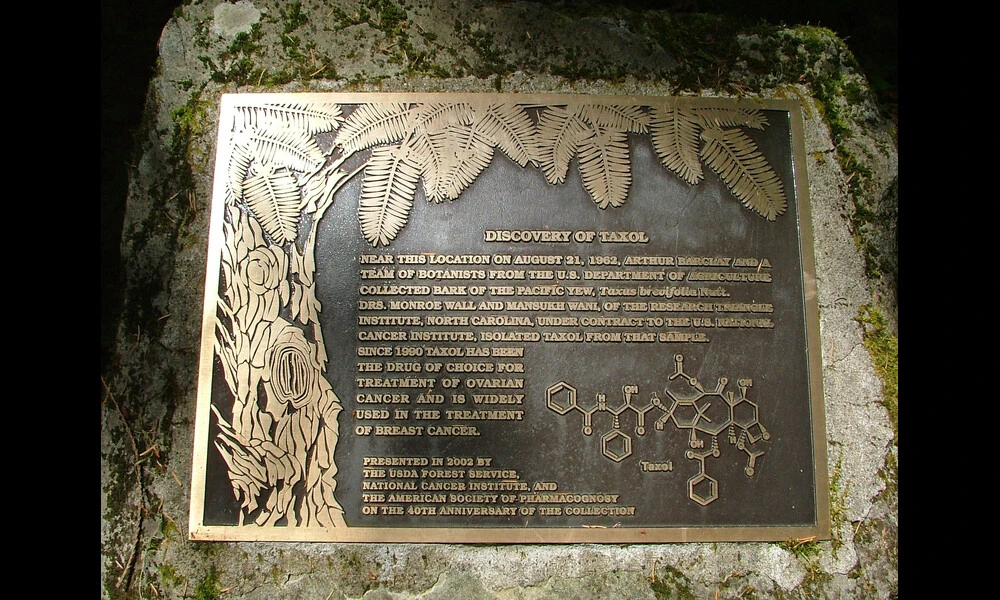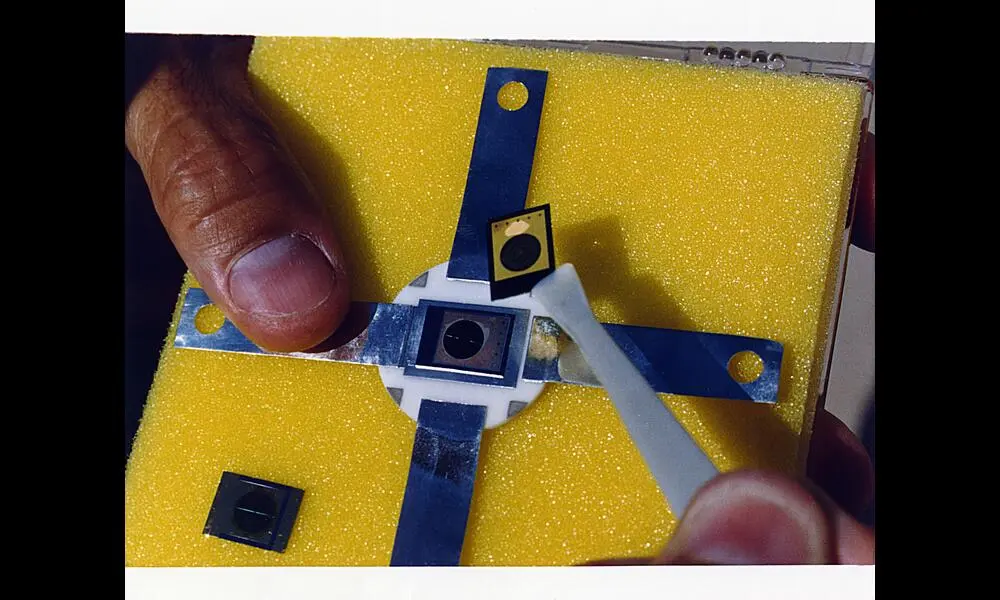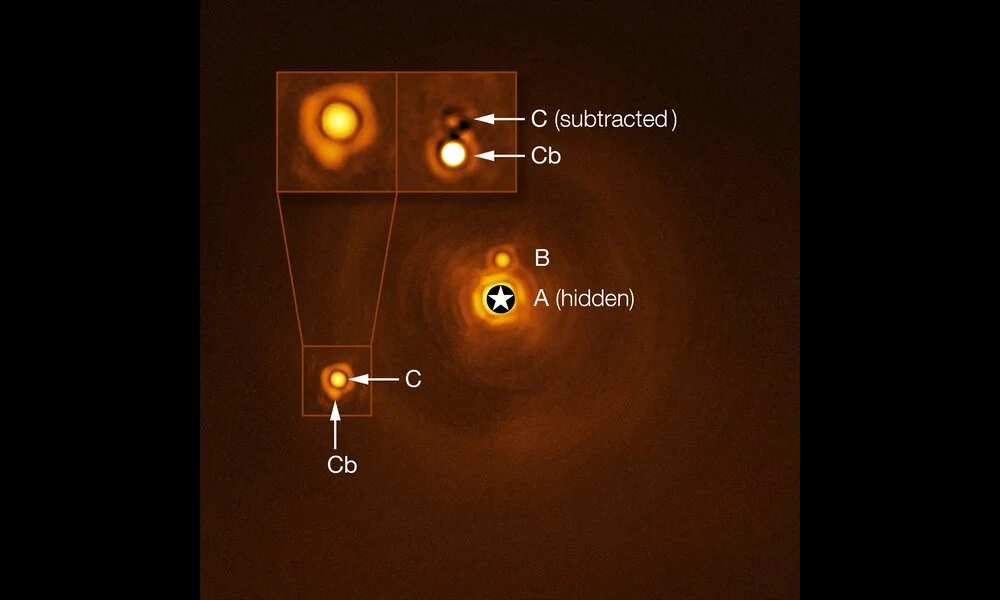New Yeast Strain Triples Anticancer Drug Production
Published on Sat Jun 03 2023 Gifford Pinchot NF - Plaque on Discovery of Taxol, La Wis Wis Campgound - GWW | U.S. Forest Service- Pacific Northwest Region on flickr
Gifford Pinchot NF - Plaque on Discovery of Taxol, La Wis Wis Campgound - GWW | U.S. Forest Service- Pacific Northwest Region on flickrA new study has found a way to increase the production of taxadiene, a precursor to the anticancer drug Taxol, in yeast. Researchers conducted an experiment where they evolved a yeast strain to be more tolerant to oxidative stress caused by the production of taxadiene. This resulted in a three-fold increase in taxadiene production compared to the parent strain.
Taxol is a widely used anticancer drug that is currently extracted from the bark of the Taxus tree. However, this process is expensive and time-consuming. Finding an alternative production method, such as using yeast, could make Taxol more accessible and affordable.
The researchers analyzed the performance of the evolved strain and found that it had improved respiration and decreased production of overflow metabolites. This indicated that the strain was more efficient at utilizing resources for taxadiene production.
Additionally, the evolved strain showed increased tolerance to oxidative stress, potentially due to a cross-protection mechanism. This allowed for optimal expression of the enzymes involved in taxadiene production.
The findings of this study could have significant implications for the production of Taxol. By optimizing the production of taxadiene, researchers are one step closer to creating a more efficient and cost-effective method of producing the anticancer drug.
Further research is needed to fully understand the underlying mechanisms behind the improved taxadiene production and to further optimize the production process. However, this study provides a promising foundation for future advancements in Taxol production.



